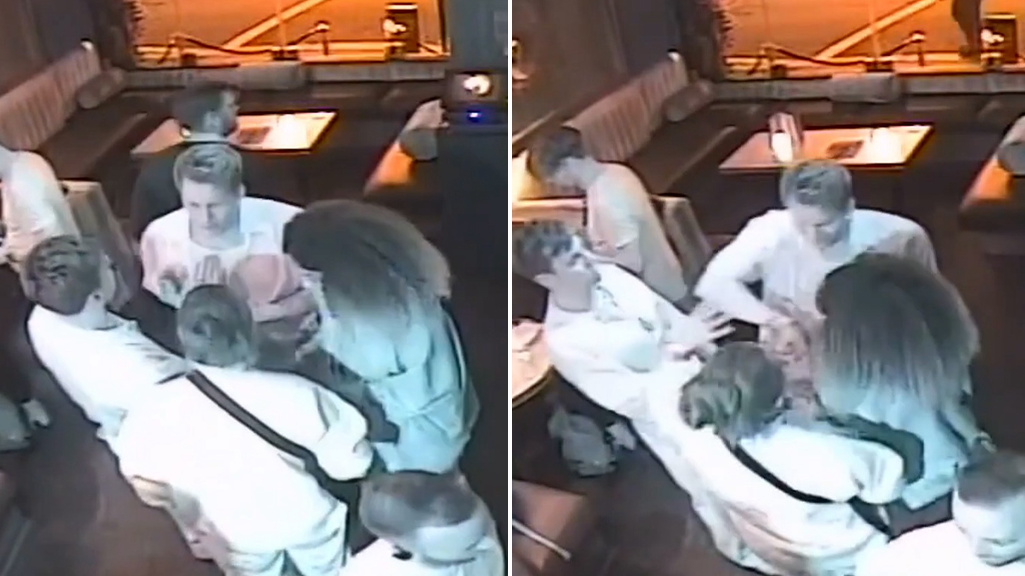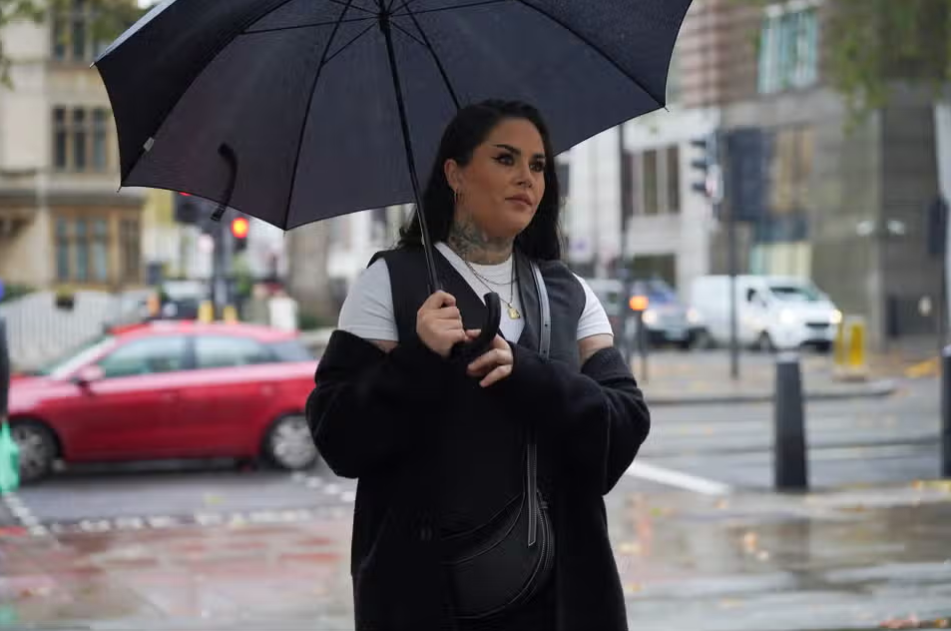CPS defends Dustin Black prosecution despite ‘weak’ case falling apart hours into trial
The Crown Prosecution Service said they believed there was a ‘realistic prospect of conviction’
Footage of the moment Oscar winner Dustin Lance Black was assaulted in a Soho bar has been released, as the CPS have defended its decision to take the case to court despite “weak” evidence.
The US screenwriter and husband of Olympic diver Tom Daley was punched to the back of the head by social media influencer Teddy Edwardes in a late-night dispute at Freedom bar last August.
Despite suffering a concussion and being the victim of the attack, Mr Black ended up on trial after being accused of assault, after Ms Edwardes claimed he grabbed and twisted her wrist.

However, CCTV footage capturing the incident failed to show a physical assault taking place, with the judge branding the case as “weak” and questioning the evidence provided by Ms Edwardes.
Following the conclusion of the prosecution’s case, District Judge Louisa Cieciora took the unusual step of dismissing the trial, deciding that there was insufficient evidence that any assault had occurred.
“I accept Ms Edwardes provided an account in which she confirmed Mr Black grabbed her wrist”, she said.
“However the inconsistencies and weaknesses in her evidence go beyond simple matters of credibility and reliability to be determined at the end of the evidence. They are fundamental to the case.
“For that reason, I consider the prosecution evidence taken at its highest is such that…I couldn’t properly convict Mr Black of the charge.”
Defending the decision to pursue the case to trial and calling three police officers to take to the witness stand, the Crown Prosecution Service said they were satisfied there was a “realistic prospect” of Mr Black being convicted.
A CPS spokesperson said: “We respect the decision of the court in this case. In accordance with our duty under the Code for Crown Prosecutors, we were satisfied that our legal test was met and that there was a realistic prospect of conviction.

“It is not the function of the CPS to decide whether a person is guilty of a criminal offence, but to make assessments about whether it is appropriate to present charges for the criminal court to consider.
“The CPS assessment of any case is not in any sense a finding of, or implication of, any guilt or criminal conduct. A finding of guilt can only be made by a court.”
Westminster Magistrates Court heard Mr Black, who won an Academy award for the 2008 film Milk, and Mr Daley had been in central London when they came across BBC Three presenter Ms Edwardes and her then-girlfriend, Love Island star Amber Gill.
The couple were invited to join their booth, with a row erupting after Ms Edwardes asked security to remove a friend of Mr Black’s from the area.
Footage of the incident shows the pair arguing animatedly, before Mr Black reaches for her drink glass, causing it to spill. His lawyer Helena Duong said: “What the defence would say you can see on the CCTV is, immediately from the very beginning, Mr Black is trying to walk away.”
He maintained that he had not touched her wrist, and can be seen walking towards the exit before Ms Edwardes pursues him and punches him in the back of his head.

She admitted the assault and claimed she tried to apologise on the evening, and later received a police caution. In a social media post, she referred to Mr Black as a “f****** d***head” and said she had “chosen violence”.
During the trial, the court heard that bodycamera footage of Ms Edwardes speaking to police had been deleted, the officer had not taken notes and the original police file on Mr Black had been lost.
The judge also found that Ms Edwardes had given various accounts of the incident to police, the court and on her social media, and had made a series of jokes ahead of the trial.
They included a response to an Instagram Q&A where she shared a meme of a topless tattooed chest with the words ‘No Ragrets’ when questioned about her assault of Mr Black.
In her ruling to stop the trial, Judge Cieciora was critical of the influencer’s explanation for her online posts, which included that she faced a character limit, that they were written in anger and that social media “isn’t real life”.
As a result, neither Mr Black or Mr Daley were required to take to the witness stand, while the Crown were ordered to pay towards their legal costs, although an exact figure was not disclosed in court.
It is understood that the filmmaker lost £600,000 in revenue due to the case, and suffered from post-concussion syndrome.
The decision to prosecute has come under scrutiny, given that the criminal justice system is currently facing a backlog of more than 350,000 cases in magistrates courts. As of September, there are more than 64,000 crown court cases open that are unresolved.
In a statement after his acquittal, Mr Black said: “I am pleased that the judge saw the truth today and ruled in my favour. As the evidence has proven, and I have always maintained, I am completely innocent, and in fact was the victim in this case of a serious assault. I am relieved this unfortunate matter is now over.”
Bookmark popover
Removed from bookmarks